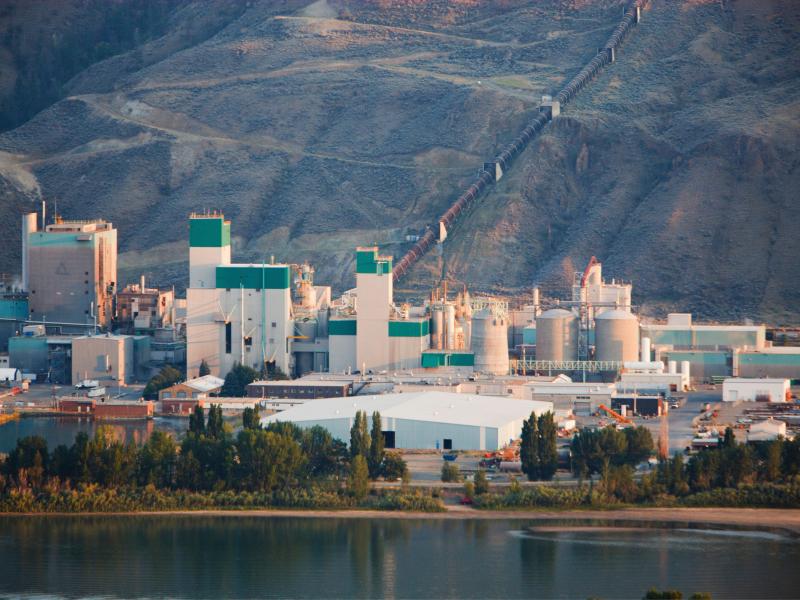Recent Articles
CIO, Canadian companies cut digital tech emissions
CIO, Canadian companies cut digital tech emissions
Internet and technology uses generate more greenhouse gasses than the airline industry. Leading Canadian companies are working together to curb the environmental impact of internet and technology use, which could account for eight per cent of emissions by 2025.
1st step to tackling smartphone e-waste is repair
• GreenBiz
As smartphone sales have skyrocketed, so have devices’ contributions to waste streams and carbon emissions. Smartphones have the potential to power economies and improve lives without damaging the earth — but only if we reconsider their lifecycles and think beyond recycling.
Tool helps companies fix packaging problem
• GreenBiz
Concerns about the environmental impacts of packaging can put companies’ reputations on the line. The Understanding Packaging (UP) Scorecard is a first-of-its kind tool that measures food packaging materials with a yardstick to help businesses make sustainable purchasing decisions.
Montreal bans single-use plastics in retail, restaurants
• CBC • Canadian Grocer
Mayor Valérie Plante has announced a plan to ban single-use plastics as part of the City of Montreal’s plan to reach zero waste by 2030. Under the change, single-use plastic shopping bags in retail stores will no longer be allowed starting Aug. 23, 2022.
Canada needs plan to double electricity supply
If Canada is serious about meeting its emissions-reduction targets, experts project that electricity demand will at least double because of the electrification of transportation, buildings and industries that currently rely on fossil fuels.
 |
Sponsored by Real estate owners: the sun continues to shine on clean energy infrastructure investment |
2021 is the “make it or break it” year for climate change, according to the United Nations Secretary-General.1 Last year was one of the three warmest years on record in the history of our planet; what’s more, Natural Resources Canada’s
Vancouver Clean Air Plan for climate, health
• Pembina
Vancouver’s 2021 Clean Air Plan outlines policies to drive changes in this time of climate emergency. The Pembina Institute offers some considerations for its success and prompts implementation, focusing primarily on transportation and buildings, with some application to industry and agriculture.
Toronto could lose accidental urban wilderness
• blogTO
Toronto prides itself for its green areas. Parks, ravines, wetlands, and an extended tree canopy offer places of natural beauty. However, new developments have brought into question whether the trading of parkland for commercial real-estate is worth it.
Insurance industry seeks to limit fossil fuels
• CBC • Globe and Mail
In the past three years, 23 major global insurance companies have adopted policies that end or limit insurance for the coal industry, and nine insurers have ended or limited insurance for the Canadian oilsands.
Managing climate risk improves economic outcomes
A Moody’s report suggests Canada could be a “climate winner” with its GDP increasing by up to 0.3 per cent, which is in stark contrast to the forest fires, record temperatures and withering crops Western Canada experienced this summer.
As ESG evolves, more thoughtful investing emerges
Environmental, social and governance investing is evolving as big players seek to make more impact solving specific problems while aiming for strong returns. Institutional investors are buying assets that fit into themes, such as climate change or water conservation.
Timberland owners sell carbon credits to save trees
As companies look for ways to shrink their environmental footprint, timberland owners are discovering an intriguing new way of diversifying their revenue streams: Sell carbon offset credits to polluters and get paid not to cut down their trees.
Apple invites 15 companies to develop climate solutions
Fifteen businesses from the U.S. will participate in Apple’s Impact Accelerator program, aimed at advancing innovative solutions for communities most impacted by climate change. Solutions will focus on energy efficiency, solar, green chemistry, recycling and other environmental issues.
Shared e-mobility company Bird now selling e-bikes
Bird is known for its e-scooters and e-bike sharing, but it is now going to sell its own designs of e-bikes directly to the public because not every city or town has bike-share programs.
Unilever, other companies carbon labeling
As companies are under increasing pressure from customers, shareholders and governments to improve transparency about how their business contributes to GHG emissions reductions, a growing number of firms are pursuing carbon labeling as part of their strategies.
Pandemic sees business sustainability take centre stage
With the crucial “Decade of Action” for the Sustainable Development Goals (SDGs) already underway, how can companies look beyond the processes and paperwork, fully understanding the ways their impacts and actions help or hinder the progress of SDGs?
Sustainability’s importance to CRE transactions
Does sustainability factor into real estate deals? The National Association of Realtors surveyed its members and found 18 per cent of respondents’ Commercial Information Exchange has green data fields, which were used to promote energy information, green features and green certifications.
Climate change causing Canada’s coastline to retreat
Projections show rising sea levels could cause Canada’s beaches to retreat inland by as much as half a kilometre. The global average sea level has increased by about 20 centimetres since 1900 — the biggest increase rate in 3,000 years.
13,500t plastic-to-hydrogen site planned for Glasgow
• H2 View
The UK’s second plastic-to-hydrogen facility could be located at Rothesay Dock, Glasgow. Peel NRE submitted a planning application for the 13,500-tonne site valued at approximately £20m ($27.5m). Utilizing technology developed by UK-based Powerhouse Energy Group, the facility will transform non-recyclable plastics into sustainable hydrogen for refuelling fuel cell vehicles.
U-Battery: Enabling localised, clean, hydrogen production
In the push to solve climate change, there are few new technologies which present greater opportunity in terms of scale than low-carbon hydrogen. Enabling the decarbonisation of heavy industry, heavy transport – including freight, shipping and aviation – as well as opening up new opportunities for clean power generation, means that hydrogen has understandably captured the imagination of policymakers, businesses and investors alike.
 Industry Events
Industry Events
-
ECO IMPACT 2026
Feb 19 2026
to Feb 20 2026
The Westin Calgary
-
BuildGreen Atlantic
Apr 27 2026
to Apr 28 2026
Halifax, NS
-
The Evergreen Conference
May 06 2026
to May 07 2026
Toronto, ON
-
Building Lasting Change
Jun 17 2026
to Jun 19 2026
Montréal, QC
-
Retrofit Canada Conference
Jun 24 2026
to Jun 25 2026
Halifax Convention Center











